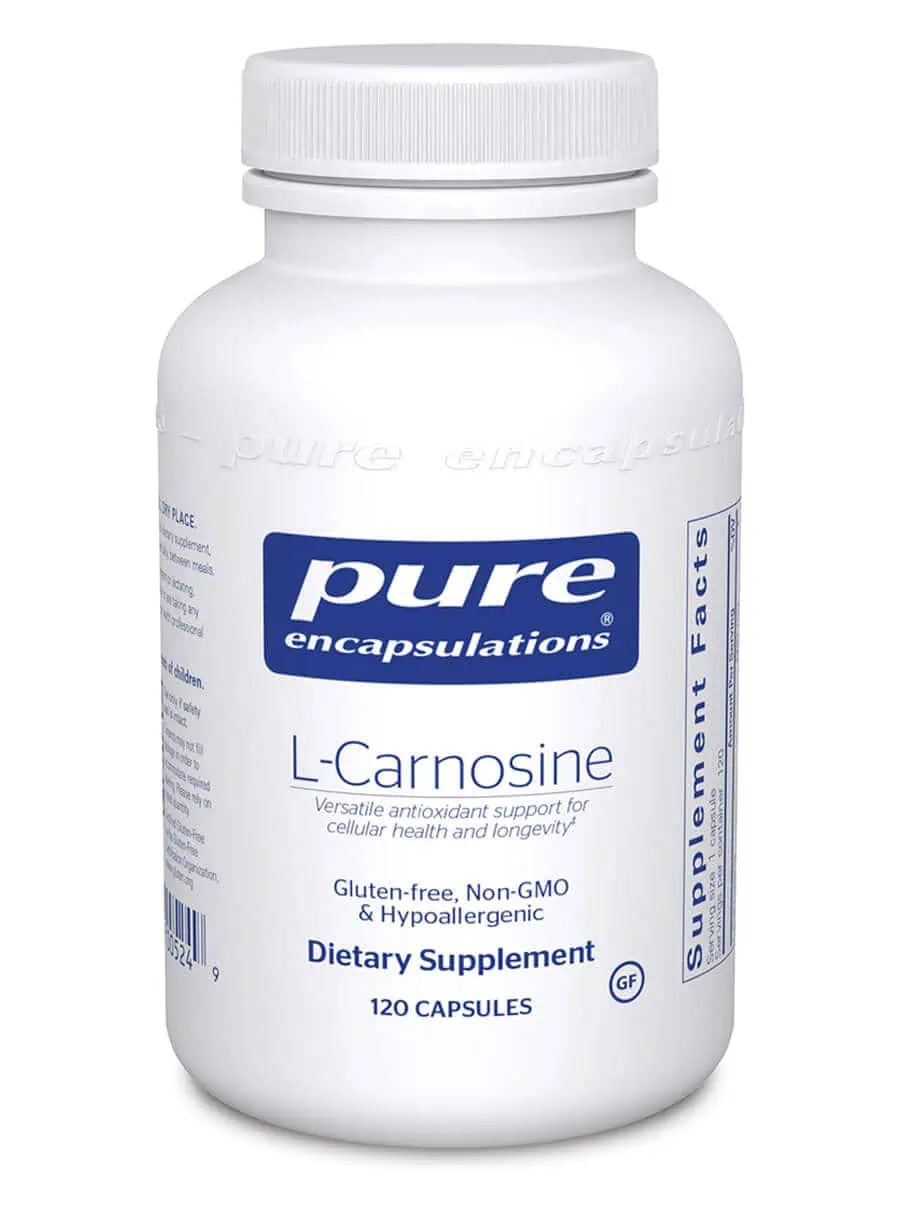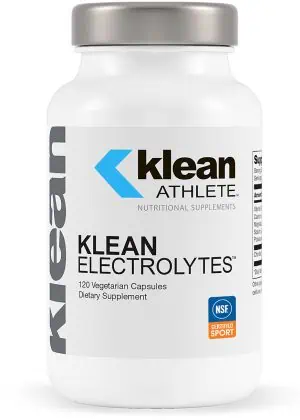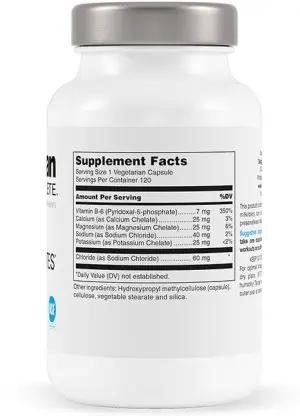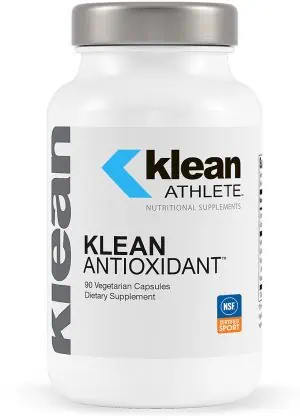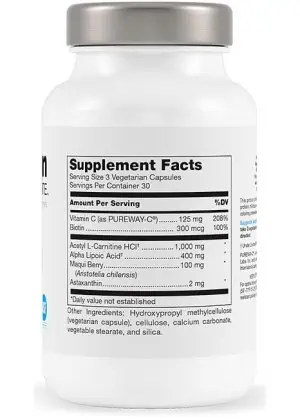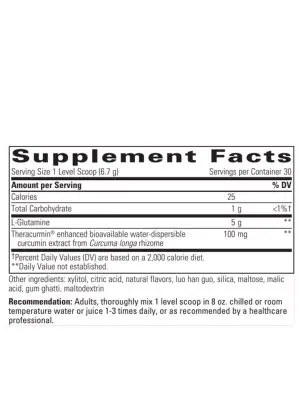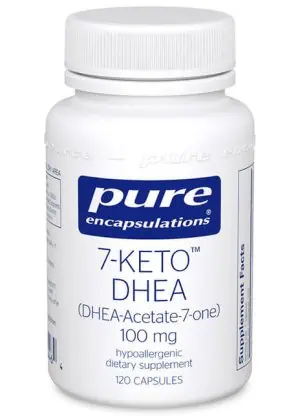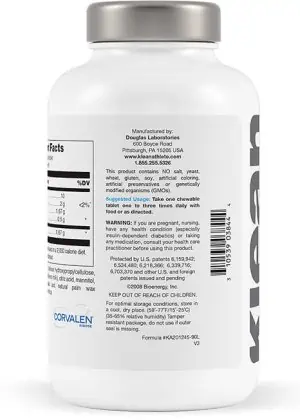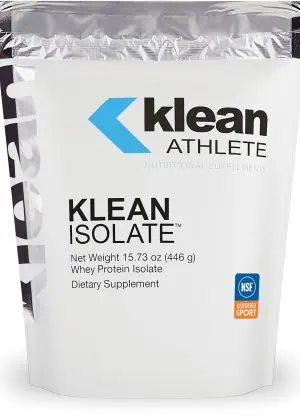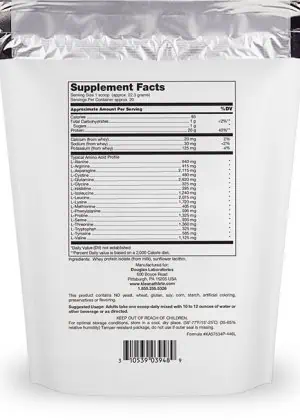l-Carnosine by Pure Encapsulations
Starting at $87.50
Starting at $87.50

Suggested Use: 1-3 capsules per day, in divided doses, between meals.
What Is It?
l-Carnosine (beta-alanyl-L-histidine) occurs naturally in the body’s muscle and nervous tissues and is formed by the amino acids alanine and histidine. Levels of this dipeptide can decline with age. The primary context of support for l-carnosine involves cellular longevity support.*
Uses For l-Carnosine
Antioxidant Support: l-Carnosine is a water-soluble antioxidant with well-documented free-radical scavenging activity and is believed to promote cell health and cell longevity. In vitro experiments show carnosine to be a potent scavenger of peroxyl and hydroxyl radicals. Carnosine may also help to maintain superoxide dismutase (SOD) activity. SOD is an important antioxidant enzyme.*
Cellular Support: In vitro, it helps to protect proteins from the formation of advanced glycosylation end-products. These end-products are formed when aldehydes (such as aldose and ketose sugars) and lipid peroxidation by-products bind to vital proteins and compromise their function. l-Carnosine also plays a role in protecting DNA from the effects of acetaldehyde and formaldehyde.*
Nervous System Support: l-Carnosine may help to maintain healthy peptide metabolism in the brain, supporting neuronal cell health.*
Cardiovascular Support: Its membrane-stabilizing properties maintain healthy lactate dehydrogenase activity of cardiovascular cells, providing a protective effect.*
Muscular Support: The concentration of l-carnosine in muscle may prove to be an important factor in high-intensity exercise performance based on a recent human study.*
Liver Support: A preliminary animal study shows carnosine has the potential to support healthy liver function.*
What Is The Source? l-Carnosine is synthetically produced.
Recommendations
Pure Encapsulations recommends between 500-1500 mg daily (1-3 capsules), in divided doses, between meals.
Are There Any Potential Side Effects Or Precautions?
Not to be taken by pregnant or lactating women. At this time, there are no known side effects or precautions.
Are There Any Potential Drug Interactions?
In animal studies, carnosine has been shown to inhibit intestinal uptake of several antibiotics. This has not been shown in humans, but it might be wise for those taking antibiotics to make sure they don’t take carnosine at the same time. *These statements have not been evaluated by the Food & Drug Administration. This product is not intended to diagnose, treat, cure or prevent any disease. For educational purposes only. Consult your physician for any health problems.
Product Ingredients
| Ingredients | AMT | %DV |
|---|---|---|
| l-carnosine (beta-alanyl-L-histidine) | 500mg. | - |
Why Buy From Us?As a trusted family- and employee-owned company for over 25 years, we've shipped more than 1 million packages, empowering our customers with expert knowledge, guiding their wellness journeys, while delivering unparalleled customer service.

Welcome to Pure Prescriptions
I founded Pure Prescriptions after overcoming Cancer at age 29, a battle that taught me the power of natural supplements and inspired me to make professional-grade, doctor-only brands accessible online—pioneering the industry over 25 years ago.
Today, still a family- and employee-owned company, we've shipped over 1 million packages, empowering countless wellness journeys with science-backed, U.S.-manufactured vitamins and supplements meticulously curated for superior quality and optimal results. Our real health experts provide personalized recommendations without upsells or gimmicks—just genuine support tailored to your needs.
Not a customer yet? We'd be thrilled to earn your trust and guide you toward vibrant health.
Sincerely,
Helpful Links:
Contact Us | LIVE Chat | Vitamin Quiz
The Pure Prescriptions Difference
When you choose Pure Prescriptions, you become part of our caring community. We’re committed to enhancing your wellness with personalized service, expertly selected products, and a dedication to your health & happiness.


Related products
Get Notified When Back In Stock
Verify you are Human:
-
- Vitamin Quiz
- Deals
- Shop
- Brands
- Shop by Manufacturer Brand
- Shop by Manufacturer Brand
- About
- Login





